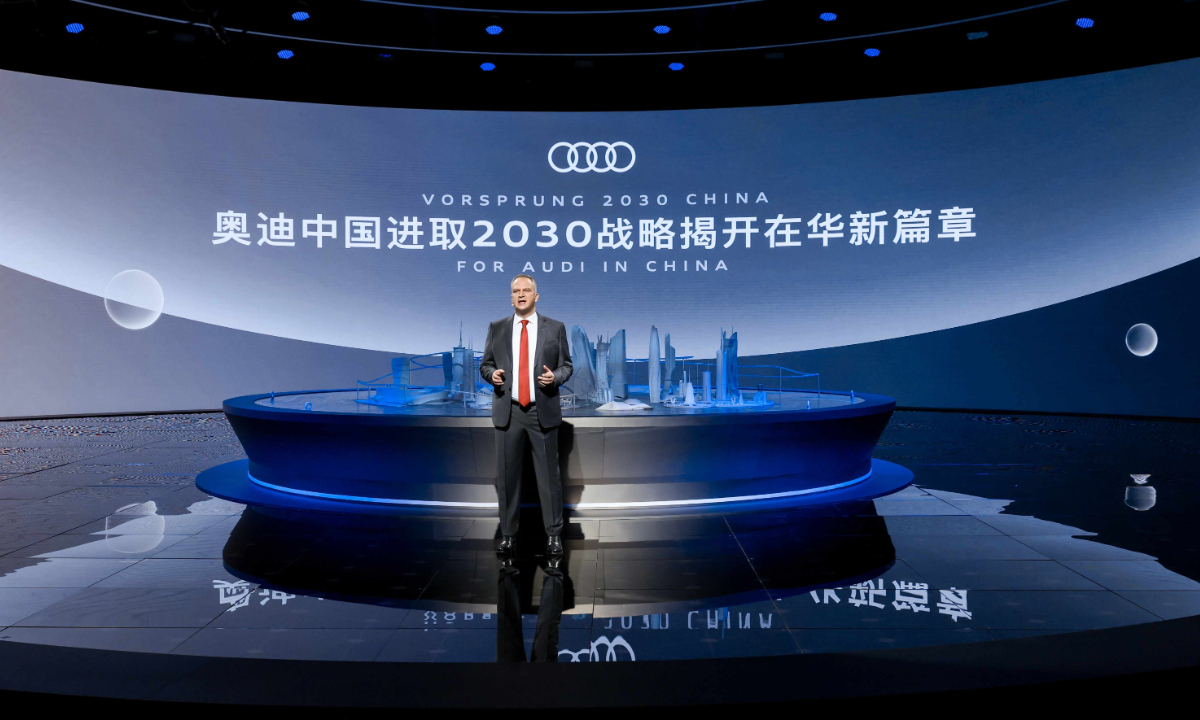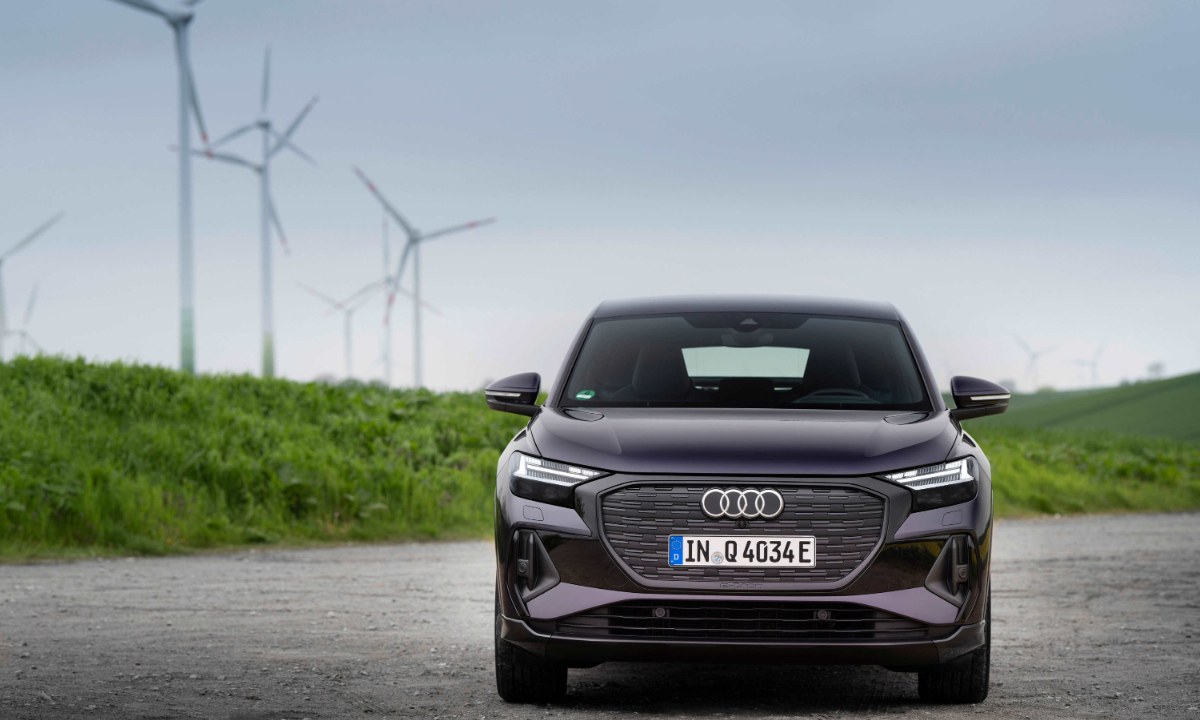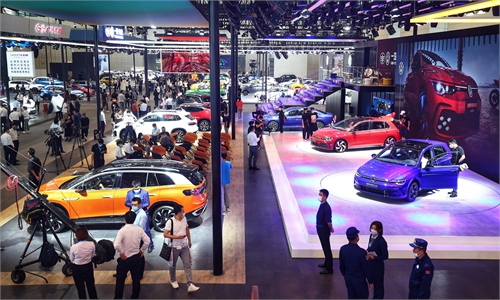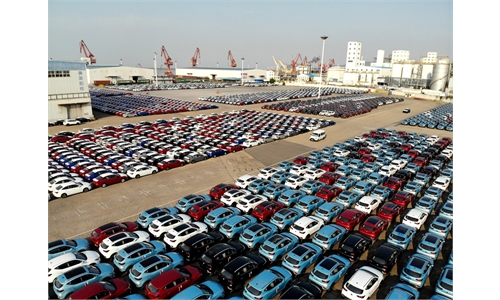
Dr Jürgen Unser, president of Audi China Photo: Courtesy of Audi China
Never before has humanity been so urgently aware of the severe impact of global warming on daily life and productive activities. The Provisional State of the Global Climate in 2022 released by the World Meteorological Organization on November 6, 2022 noted that the year 2022's extreme heat waves, droughts and devastating floods have affected millions of people worldwide and caused billions of dollars in damage.
At the subsequent COP27, UN Secretary-General Antonio Guterres said the planet is rapidly approaching a climate change tipping point. The need to reduce greenhouse gas emissions and achieve climate neutrality is urgent.
As one of the global greenhouse gas emitters, the auto industry has been driving the upgrade of global energy structure in recent years, transforming to electrification at an unprecedented rate.
Luxury brands, which have been leading the development of automotive technology, have become an important driving force behind this dramatic change. The sustainability of the enterprise will likely become an important indicator of the success of this change.
This ability is not only reflected in the electric products, but also in the change of business mindset. It requires that the concept and goal of sustainability be taken into account in decision-making before product construction and business practices.
In this regard, Audi has been at the forefront. In 2022, Audi has identified ESG as a key area of action in its newly announced "Vorsprung 2030" strategy and has integrated ESG concept into all company and product-related decisions.
ESG is a new type of corporate evaluation system that focuses on environment, social responsibility and corporate governance. Audi is practicing the ESG-oriented concept of "Green Luxury" throughout the entire corporate value chain and business practices, from products and services, value creation and production, to employees and society, operations and integrity.
In terms of operations and integrity, ESG has become a cornerstone of Audi's decision making. In its economic decisions, Audi always takes ecological and social aspects into account, achieving both profitable growth and sustainable management to ensure long-term competitiveness. To this end, the group is looking to invest in the future and plans to pre-invest 37 billion euros ($39.4 billion) in new model projects worldwide over the next five years, including 18 billion euros in future technologies such as the electric and hybrid segments.
As of products and services, the company developed a roadmap for electrification transition. From 2026 onward, Audi's new models launched for the global market will be fully switched to purely electric products, and the production of internal combustion engines will be phased out globally by 2033.
The auto sector has long industrial chain with many components and complex materials, involving many links that produce carbon footprints. Therefore, during the entire industrial chain, from product design to procurement, production, marketing and recycling, closed-cycle reuse can achieve as much decarbonization as possible, and reduce greenhouse gas emissions.

Audi’s Q4 Sportback 40 e-tron Photo: Courtesy of Audi China
In 2021, the waste generated during the production of Audi vehicles decreased more than 5,000 tons compared to 2020, with the average waste generated per vehicle narrowing about two kilograms, of which more than 95 percent can be reused. For example, 27 parts of the Audi Q4 e-tron are made of recycled materials such as industrial production waste.
In the field of value creation and production, the group wants to achieve carbon neutrality at all of its production sites by 2025. Audi FAW new-energy vehicle (NEV) project broke ground in Changchun, Northeast China's Jilin Province in June in 2022, which is the enterprise's first production site in the country to implement the "Mission: Zero" environmental program of the firm's global production network.
In this project, a solar photovoltaic system will be activated on the roof of the production site, which will generate more than 30 million kilowatt-hours of electricity each year; in terms of heat supply, biomass fuel is used to achieve green and clean production. In addition, Audi is also pulling its parts suppliers together to reduce emissions.
In 2021, the carbon emissions of its supply chain were reduced by a total of more than 480,000 metric tons.
"Audi is driving the auto industry's transition to green sustainability and helping make China's zero-carbon future a reality with entrepreneurial spirit," said Dr Jürgen Unser, president of Audi China.
Audi is committed to achieving zero-carbon emissions by 2050 at the latest. For the group, sustainability is not just the icing on the cake; it has become a prerequisite for Audi's actions.



